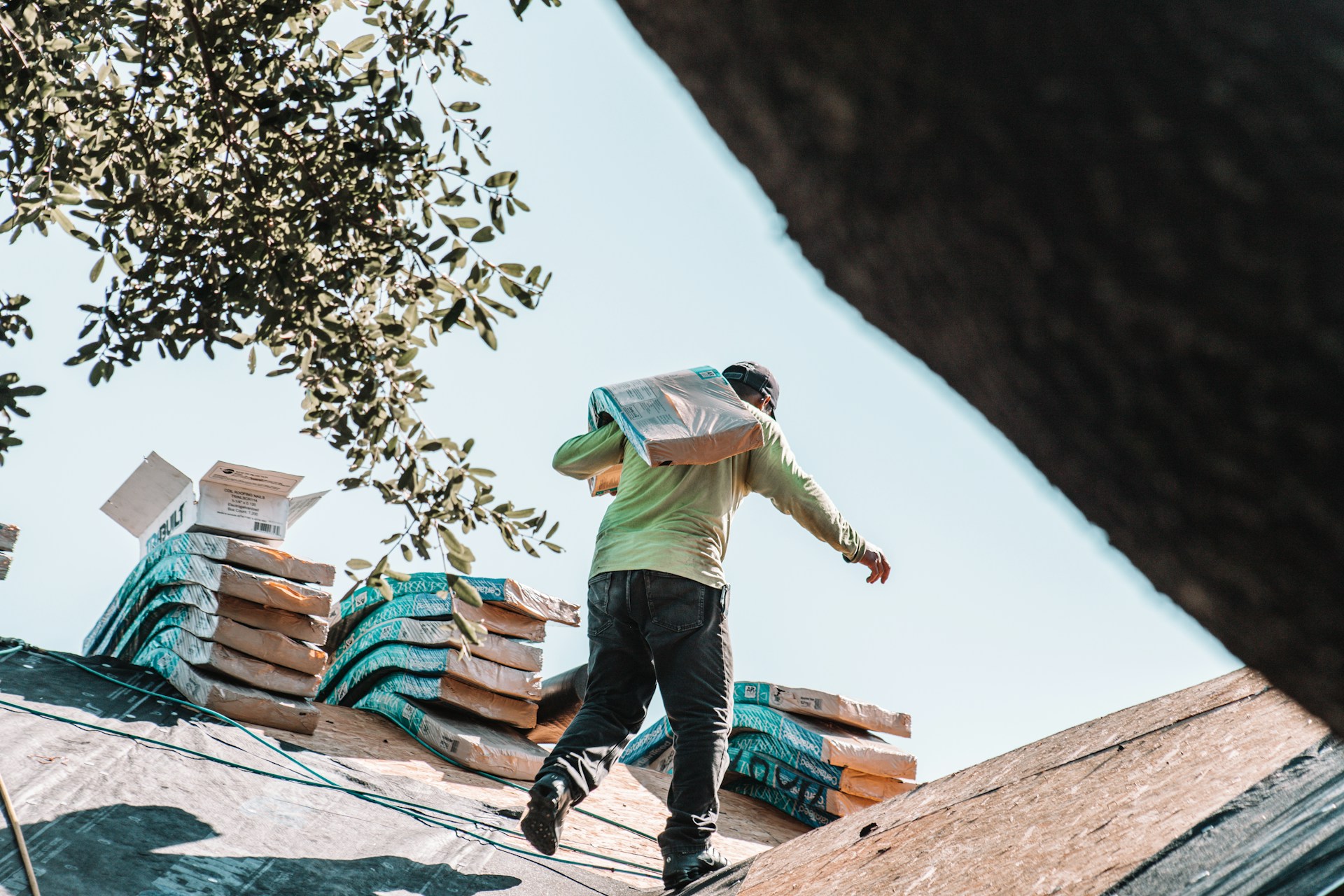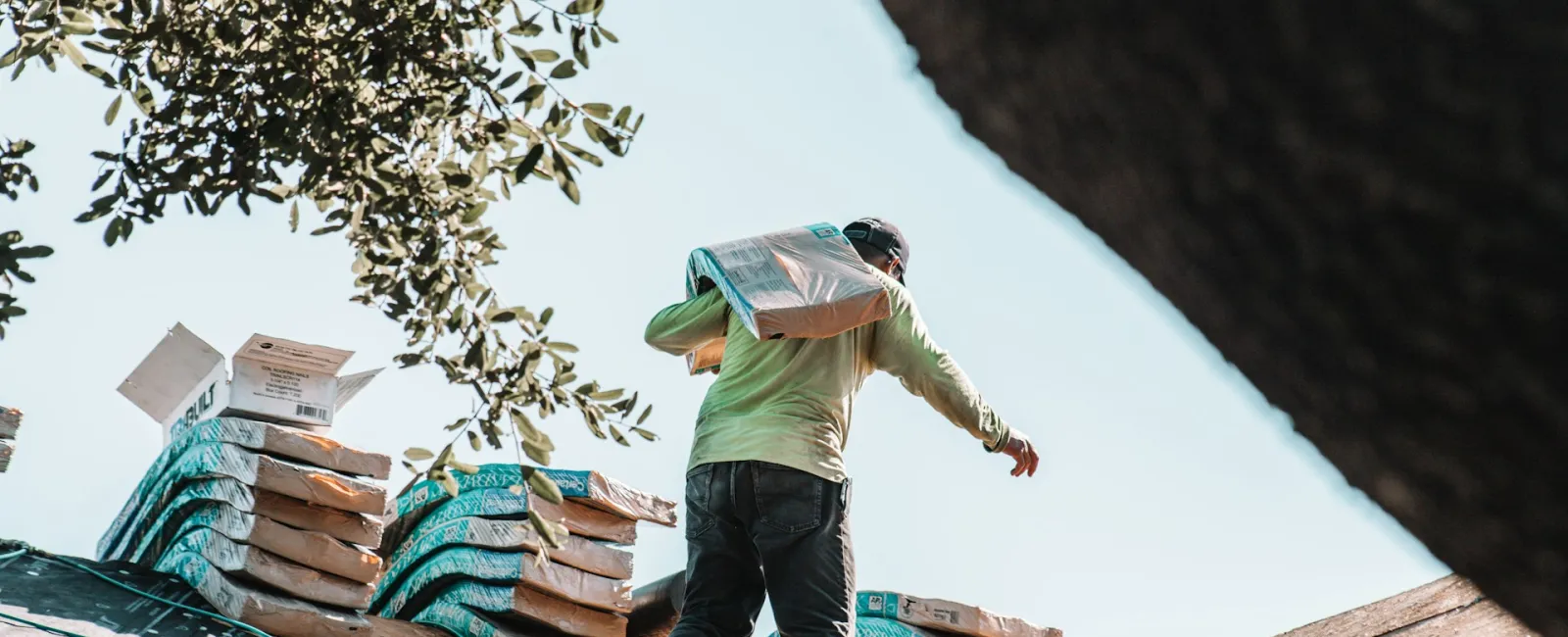
When the time comes to replace the roof of your Atlanta home, you might choose to stick with the same roofing material. After all, your last roof likely lasted for decades and served you well enough throughout. Nevertheless, it's a good idea to explore the market. There are plenty of newer options available for residential roofing materials, and some might work out better for you in the long run than you might initially think.
Of course, the Atlanta climate will play a crucial role in your choice. Environmental factors can affect your indoor comfort, energy efficiency, protection against water damage, and much more. By exploring the best options for the region and looking at the benefits of each, you can determine which choice will provide the best protection for your home.
Consult our FAQ section for quick answers, then learn more extensive information in the article below.
FAQ: What's the Right Roofing Material for My Atlanta Home?
What are the most popular roofing materials for Atlanta homes?
Asphalt shingles, metal roofing, solar shingles, tile roofing, and modified bitumen are all popular options. Each has unique benefits and drawbacks depending on your budget, home structure, and climate considerations.
How does Atlanta's climate affect roofing material choices?
Atlanta's hot, humid summers and occasional heavy rainfall require roofing materials that can handle heat, moisture, and potential water damage. Reflective materials, moisture-resistant options, and durable designs are ideal for the region.
What is the most affordable roofing option?
Asphalt shingles are the most budget-friendly option, offering a lifespan of 20-30 years with proper maintenance. However, their durability can vary based on quality.
What are solar shingles, and are they worth it?
Solar shingles are roofing materials that double as solar panels, converting sunlight into energy. They're eco-friendly and energy-efficient, but they have higher installation costs compared to traditional shingles.
What roofing material is best for flat or low-slope roofs?
Modified bitumen is ideal for flat or low-slope roofs. It's durable, waterproof, and resistant to UV radiation, making it a reliable choice for homes without steep slopes.
How do I choose the right roofing material for my home?
Consider factors like your budget, the lifespan of the material, your home's structure, and Atlanta's climate. Consulting with a professional roofer can help you make the best decision for your needs.
Why is professional installation important?
Proper installation ensures your roof performs as expected and lasts its full lifespan. Materials like solar shingles, tile roofing, and modified bitumen require specialized skills, so hiring an experienced roofer is crucial.
Asphalt Shingles: A Consistently Popular Choice
For many Atlanta homeowners, the upfront cost of a new roof plays as much of a role in their material decision as the local climate does, especially when the need for a roof replacement comes as a surprise. To address these cost concerns, many Atlanta property owners will still opt to rely on asphalt shingles.
These represent the most affordable option on the market, but they're not without any benefit: Asphalt stands up with greater resilience against a variety of climate conditions, and will usually last 20-30 years with proper maintenance. As a bonus, asphalt shingles reflect heat, which means that even on Atlanta's hottest days, you'll keep your home cool without wasting energy.
Another, albeit more subjective, advantage when it comes to asphalt is its wide range of color choices. You can choose from a vast palette of trendy roof colors, whether you intend to match the color of your home or change things up for a bolder look.
Regardless of all of these perks, though, it's important to note that the quality of a roof's shingles will affect their durability. Cheaper options will deteriorate faster under the region's harsh conditions. There are some roofing options further down on this list that will last longer, though they demand higher upfront costs. It's a trade-off you must consider as you make your decision.
Metal Roofing on Atlanta Homes: A Potentially Wise Alternative
Metal roofs weren't always a popular choice for homeowners, but that trend has seen a bit of an inversion in recent years. More residential property owners are embracing the advantages of covering their homes with metal roofs, as they're highly effective at reflecting summer heat.
Additionally, since metal isn't an organic material, it won't contribute to concerns like mold growth; in fact, metal roofs help mitigate humidity and moisture. And when you consider Atlanta's excessively humid summers, that's a strong selling point for area homeowners.
Metal roofs also last longer than asphalt shingle roofs, offering a lifespan between 40 and 70 years, but that longer lifespan does come at a higher initial cost. In addition, there are fewer color options than those available with asphalt shingles.
Perhaps the strongest disadvantage that has discouraged homeowners is the potential noise pollution of a metal roof. Especially during heavy rainfall, the sound of water or hail impacting the metal can feel like a distraction. Modern installation techniques and proper insulation, however, can help mitigate the issue.
Solar Shingles: Keeping It Green in Atlanta
You might have considered installing solar panels in the past, but stepped back when thinking about the extra weight they would add to your roof. Solar shingles are the perfect solution. They look just like regular asphalt shingles, but they contain photovoltaic (PV) cells, which convert sunlight into energy, all while the shingles offer the effective protection you expect for your home.
Through that conversion, solar shingles will also give your energy savings a boost. You can use the energy that the shingles provide directly, store it in batteries, or feed it back into Atlanta's power grid for a credit.
Solar shingles are designed to stand up against Atlanta's diverse climate and seasons, typically lasting between 25 and 30 years (once again making them comparable to asphalt shingles). And since they blend seamlessly with your home's design, they'll ensure a beautiful roof replacement.
Some homeowners, however, do feel put off by the upfront costs of these devices. The installation costs are indeed higher than regular shingles, and they are generally more expensive compared to traditional solar panels.
The installation also involves a complex, more labor-intensive process, so it's important to ensure your roofer has experience dealing with solar shingles. Along with the size of your roof and other factors, hiring the right roofers will go a long way in affecting your final roof replacement costs.
Tile Roofing: Newer and Advantageous Option
You can find tile roofing options in almost any part of the country, but they're particularly suited to the Atlanta climate because the materials are naturally resistant to heat, humidity, and moisture (as well as fire, pests, and deterioration). As a result, they serve as a strong barrier against water damage and mold growth.
Homeowners can choose from clay, concrete, slate, metal, or composite materials. Clay and concrete are more common, but slate has a reputation for lasting longer. In any case, thanks to the dense makeup of the tiles, they're highly effective at absorbing and releasing heat, meaning they'll protect your living spaces against the higher temperatures of Atlanta's summer months. Tiles can last upwards of 50 years, offering the longest lifespan of any option on this list.
While tile roofs offer a traditional, high-end look, they're not ideal for every house. They are quite heavy in comparison to other options and might collapse without sufficient support. Your roofer can determine whether your house's structure is strong enough to support roofing tiles.
Additionally, due to their increased weight, roofing tiles require a complex and labor-intensive installation process, much like solar shingles. As such, the higher cost of tiles is to be expected.
Modified Bitumen: The Ideal Choice for Flat or Low-Slope Roofs
Most Atlanta houses have steeply sloped roofs, but not all do. If your home has a flat or low-slope roof, you'll need a more viable alternative. A modified bitumen roof uses asphalt with polymer modifiers, which give the roof's durability and weather resistance a boost. These types of roofs get installed layer by layer, creating a waterproof barrier on a home where rainwater runoff isn't feasible.
Once installed, the material is resistant to tears, punctures, UV radiation, and extreme temperature variations. You can also use energy-efficient cap sheets for cool roofing in combination with the bitumen. The material stands up longer against foot traffic as well, so if you want to build a rooftop garden or patio, the material will provide a sturdy surface.
The downsides of modified bitumen, however, are twofold: Since it's applied in layers, the finished roof will add considerable heft to your home. And since the installation requires a process of heat welding or the use of strong adhesives, a roofer with extensive experience and skill is crucial for a proper installation.
Talk to the Pros About Your Roof Replacement
When partnering with Tom and Jerry's Roofing, you'll have access to our professional insights as a roofing leader in Atlanta. We can help you choose roofing materials that meet the region's unique requirements, and we'll walk you through the roof replacement process, taking any stress and worry out of the picture. Contact us to request an estimate today!

